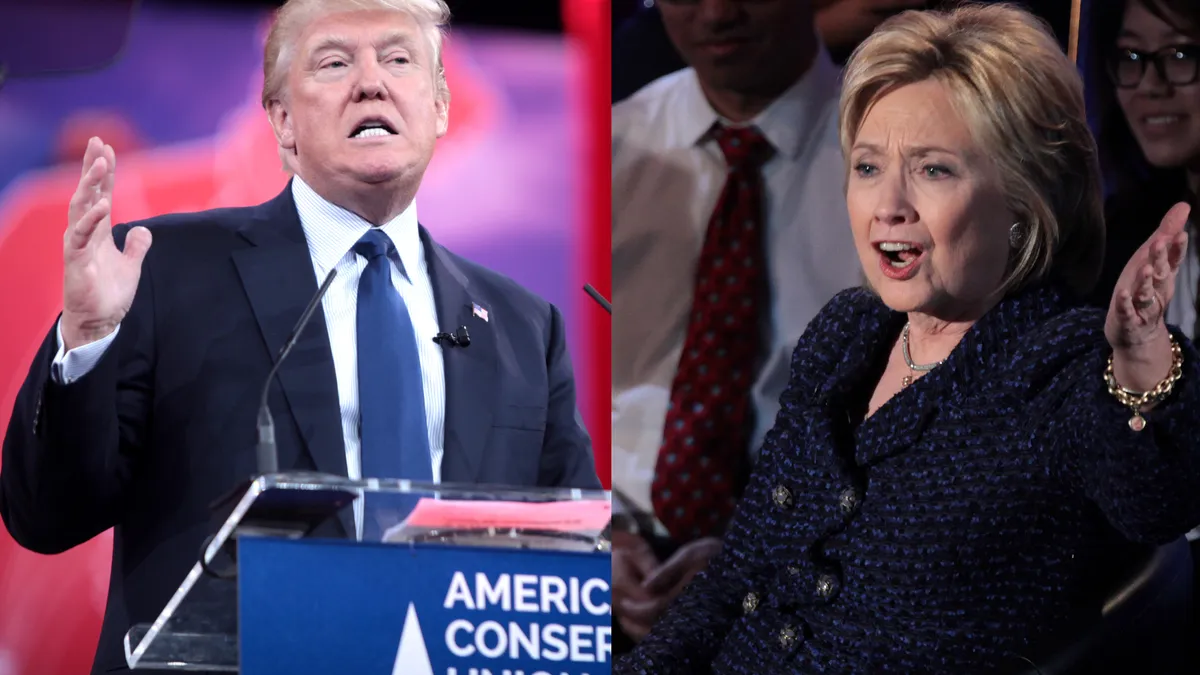Dive Brief:
- The bitter battle between Hillary Clinton and Donald Trump for the White House is "stressing out workers and inciting workplace arguments that are hurting productivity," according to new findings by the American Psychological Association (APA), SHRM reports.
- APA survey results show that more than 1 in 4 employees have been negatively affected by workplace discussions over the Clinton-Trump contest. Also, the survey reports, unsurprisingly, divisions are most acute when it comes to generations and genders.
- For workers under age 34, 28% reported that political discussions at work left them feeling stressed-out, and 25% of millennials said political debates were leading to workplace hostility, SHRM reports. Also, 5% reported avoiding some co-workers because of their political views.
Dive Insight:
It's safe to say there has never been a presidential election quite like this one, with such a strong polarization of political views. In fact, the APA findings bolster findings from an earlier SHRM survey of HR professionals on politics in the workplace, with 26% percent of respondents reporting tension, hostility or arguments among co-workers because of political affiliation.
Meantime, there are strategies whereby HR leaders can try and keep that workplace stress to a minimum, though this particular election is testing those efforts. There is still a month left until election day, so the time may be right for HR leaders to revisit their workplace situations regarding political activity. It is important to note that discussing political views at work is considered “protected concerted activity,” but employers can monitor and discourage political discussions that may offend protected classes, for example. Keep in mind also that some of 2016's most hotly debated political topics concern employment law; employers who listen and, within reason, act to address the concerns of their employees are only bettering their employee engagement.













